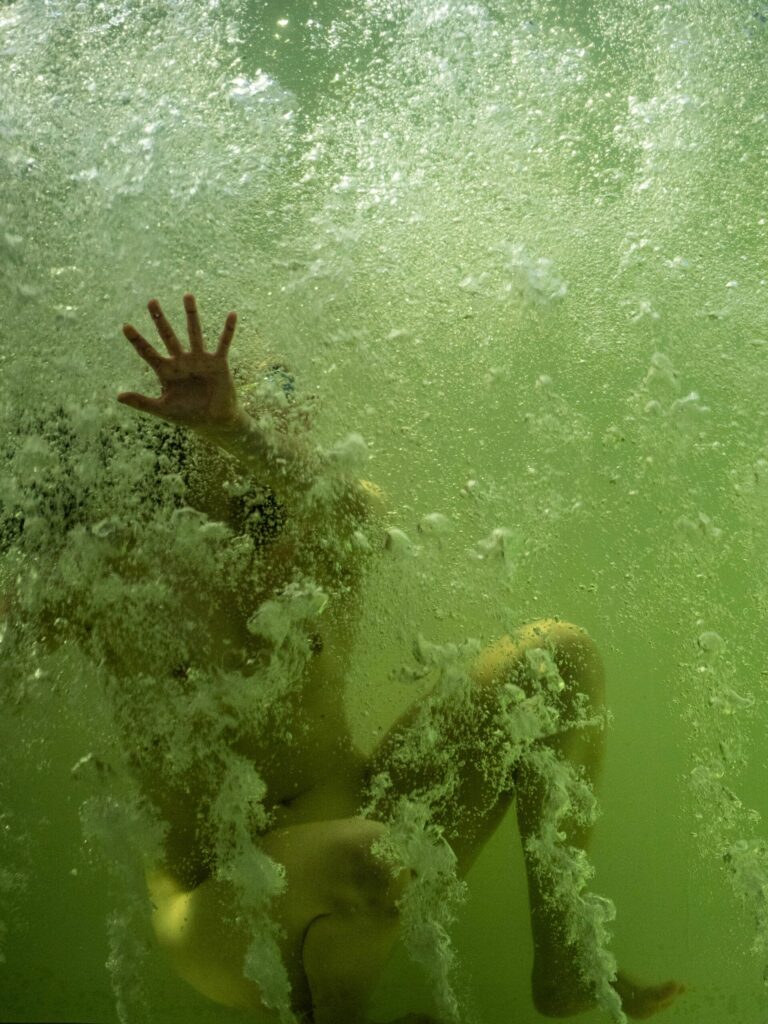To invite Florentina Holzinger + Ensemble to this year’s Theatertreffen was not only the right thing to do, it’s also damn important.
In a festival that has already been subject of such polarising debates, having among the 10 best productions one that brings bodies onto the stage and celebrates their diverse beauty in such a manner as “Ophelia’s Got Talent” does, lets people from my community nod to each other with prosecco glasses in their hands. She did it. Again. And what she is doing is nothing less than writing theatre history before our very eyes. Being rooted in the independent, subcultural scene, and yet establishing herself for the second time now with a production in such a prestigious and long-established institution – thus to gain „mainstream“ recognition not only for her work, but also political statement – deserves recognition.
Their poetic depth alongside the almost absurd lightness, brutality as well as tenderness, form emotional fireworks – whilst at the same time building a pointed, humorous critique of phallogocentric narcissism. The audience nods, bobs, laughs, closes their eyes, holds their breath, and throws their arms up in ecstasy as soon as volunteers are asked for, and then spontaneously undresses to go diving on stage. Her success is not based on sudden hype, but on the fact that in her – in this case indeed remarkable – productions, she performs a celebration of queer-feminist free swimming with her outstanding ensemble, celebrating on stage what female freedom and empowerment can look like. It’s not only because we see naked women who let us participate in a talent show in the most diverse forms of performance, from apnoea Houdini to sword swallower, thus valorising them as performative art forms per se, and that this shows a first, clever gesture of ironic removal from a fixed canon. It’s also that, with their second invitation to Theatertreffen, Holzinger & Co. certainly do not intend to join the canon, whatever canon there is. What for? They invent their own meanings, and spontaneously give completely new meanings to terms of the „occidental“ philosophical tradition.
This production is also outstanding because of the way we as spectators are playfully confronted with necessary questions that address both ancient and contemporary problems: How is the patriarchal, capitalist exploitation of female-read bodies related to that of our resources? How do we deal with our resources, how do we handle our stories? What does responsible, sustainable care look like? And most importantly: How do we want to live together in the future? Ophelia’s Got Talent does not only deconstruct the heteronormative phallocracy, it reverses it with a nonchalance that – in the same breath – hints at possible alternatives. When the mermaid-performers look at themselves in mirrors lifted by the children, the mirror is also held up to the audience: „Could it be that we love ourselves more than we love nature?“ Holzinger’s voice echoes softly through the transformed Volksbühne, now a gigantic swimming hall holding space for three pools and one helicopter. Time to reconsider the oceanic feeling, I’d say.
